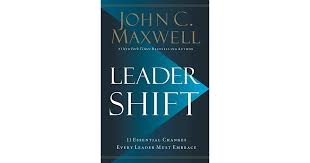
When your values are clear to you, making decisions becomes easier. – Roy E. Disney
In 2004, a painting by Anna Mary Robertson, better known as Grandma Moses, was brought to the Antiques Roadshow for appraisal. Born before the Civil War, Robertson did not take up painting until late in her life. Her primitive style eventually became extremely popular, and her work commanded a high price.
The man who brought the painting to be evaluated had lived nearby and his mother was a friend of Grandma Moses. He said, “She was just a wonderful friend of the family. And she would let my mother buy these paintings, which she thought had relatively little value. I guess my mother did, too. She probably bought eight or ten paintings in all, and my guess would be for perhaps under ten dollars each.”
The painting that was bought for around $10 was appraised as being with $60,000. In her early days of painting, Grandma Moses did not think of her works as being very valuable, so she parted with them for next to nothing.
Could it be that we are living in times when we truly don’t understand the importance of our values? Indeed, the times in which we live cry out for values-based leadership and in particular, leaders who are anchored to them. Click To Tweet We need leaders who know their true north and live it.
By simple definition, values are “the regard that something is held to deserve, the importance, worth, or usefulness of something.” But defining values and living them becomes the challenge. Here are a few reasons why they are important to you as a leader.
Values are your non-negotiables
In leadership, your values represent your core convictions on how you lead, treat the people on your team, and how you interact with the clientele whom you serve. Your values bring clarity to who you are as a person and how you choose to live and interact with those around you. Your values, therefore, become the filter through which your decisions are made.
Values clarify policies and procedures
Many leaders pride themselves in the policies and procedures of their organizations. But they are only useful if they align with your values. Your policies and procedures do not operate in a vacuum apart from your values. Click To TweetAnd in the event you ever deal with a situation that is not addressed in your handbook, then your default procedure is always to defer to your values for guidance.
Values complement your ‘why’
Much has been said and written in recent years on finding your why and rightfully so. It’s imperative to you as a leader to know it. Knowing your why points you in the right direction while knowing your values provides you the moral compass to go there Click To Tweet. Trying to live out your why without values is like a fish trying to live out of water. It just doesn’t work. So before you begin your journey of discovering your why, start with your values.
Values facilitate decision making
As Roy Disney said in the lead-in quote, when your values are clear, decision making becomes easier. Many things about leadership are hard. Hang around long enough and you will learn that. But decision making within your organization becomes easier when your values are clear. Granted, not everyone will like your decisions, but when they are grounded in your values, then explaining that decision now becomes a teachable moment to remind them of those values.
Final Thoughts
Rumi said, “You know the value of every article of merchandise, but if you don’t know the value of your own soul, it’s all foolishness.” And this is the underlying reason to identify and know your values both personally and professionally. There are some things that are passing and temporary and other things that are eternal. The wisdom that comes from knowing your values helps you to know the difference.
©2020 Doug Dickerson










 Recently, I was reading back through
Recently, I was reading back through 